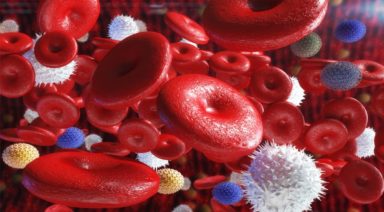Can Past Life Regressions Provide Evidence of Reincarnation?

Could your love of sushi be proof that you were Japanese in a past life? Maybe not, but for a group of 24 Burmese children it might be. After WWII, a large group of children in Burma claimed they remembered being Japanese soldiers in their past life and could not tolerate the spicy Burmese cuisine; instead they craved raw fish.
This concept of reincarnation is widely held in many parts of the world, especially areas where Hinduism and Buddhism are practiced, but not until recently has it come to be a widely accepted idea in the western world. Like other eastern philosophies that are becoming more and more pervasive in our culture, reincarnation has become more plausible, especially in the context of past life regressions.
Remembering Past Lives
It’s been estimated that about a million people have accessed past life memories in one way or another. But the most common method is through a guided therapy session with a psychotherapist. During these sessions, the subject is put under hypnosis while a therapist guides them with directions and questions.
Regressions can range in time periods, locations and ages, and are often cathartic as they help patients access memories that are somehow tied to physical afflictions or anxiety experienced in the current lifetime.
Today, one of the most prominent names in past life regression is Dr. Brian Weiss. Weiss’ daughter, Amy Weiss, had never had a successful regression, despite her father’s profession. Having, essentially given up on any expectations, she decided to participate in one more session, figuring that she could at least get a nap out of it.
She had recently been diagnosed with cataracts at the age of 25 and was confused as to why someone her age would be afflicted with such a condition. She experienced a past life regression and connected with an old man in the middle ages who was accused of being a wizard. His house was set on fire by villagers, subsequently burning his eyes. She said she felt a connection with the man’s heart and realized it could be tied to her cataracts.
The session proved to have profound therapeutic benefit as her cataracts eventually cleared up. She said the experience brought her closer with her father as she now understood the power of his practice.
Weiss was originally a skeptic of past life regressions himself. As the head of psychiatry at Mount Sinai Medical Center in Miami, Weiss boasts an impressive resume of Ivy League education and esteemed med schools.
At one point during his tenure, Weiss conducted a therapy session with a patient whom he put under hypnosis. Their session triggered a past life regression in which she described people, places and events in great detail. Weiss was so intrigued by her account that he looked up historical records and confirmed what she had said. From that point on he was convinced and has devoted his life to the study.

Reincarnation Evidence
Past life regressions can be a contentious topic among practitioners of psychology. The evidence and accounts are overwhelming, but there is debate as to what they really are. Of course, one side believes they are real memories, but other professionals believe they could be anything from fantasies, to archetypical allegories and metaphors, to an expression of the collective unconscious. There are even those who have devoted their careers to studying and documenting cases of young children with memories of previous lives, who are still skeptical of reincarnation.
Dr. Ian Stevenson is a well-respected name as the chair of the department of psychology at the University of Virginia. He was given a million-dollar grant to fund research into paranormal psychology, or parapsychology, with the intention of disproving the concept of reincarnation. However, his research on the uncanny memories of young children from their past lives convinced skeptics otherwise.
Today, Dr. Jim Tucker continues to conduct the work started by Stevenson. One of the commonalities their research has found is that 70 percent of people who experience these memories tend to have died at a young age or due to an unnatural cause of death. A quarter of those who died of natural causes died under the age of 15.
Another recurring characteristic they noticed was that birth marks are often associated with areas of trauma or injury from past lives. Some cultures even use this idea to spot reincarnations in the future. The Dalai Lama and other Buddhists often smear butter on bodies after death, which is thought to correspond with a birthmark on their reincarnated bodies.
The biggest difference between Dr. Stevenson and Dr. Tucker’s work, compared to most past life regression therapists is that they do not study those put under hypnosis. Instead, they look at cases of kids who start to spontaneously remember things and who start speaking about their previous lives while fully cognizant.

In one of Tucker’s papers he recounts a story of a boy from Thailand who, at the age of three, started complaining he had been shot and killed in his previous life while riding a bicycle to school. He even remembered he was a local teacher named Bua Kai. His grandmother took him to the village where he said he had lived, leading her to the home of Bua Kai. He recognized the people living there and they confirmed that five years earlier, their son Bua Kai had been shot and killed while riding a bicycle to work. He was shot in the back of the head marked by a small entry wound with a larger exit wound in the front of his head. The little boy had been born with a small birthmark on the back of his head and a larger, oddly-shaped mark on his forehead.
Did We Really Have Past Lives?
For those who haven’t had vivid memories of their past lives there are a few characteristics that might be clues to whether you may have been reincarnated. Some can be as blatant as a strange birth mark, but others are a little subtler. The following are a list of feelings, experiences, or traits that some associate with reincarnation and past lives…
- You have out of place memories
- You feel older than your age – sometimes people refer to you as an old soul
- You feel like you were born into the wrong decade or era
- You are fascinated with foreign countries and foreign language comes easier to you
- You have vivid dreams of being in a different place or different time period
- You have inexplicable fears or phobias that could be linked to past life trauma
Another common trait often attributed to past lives is an association with the opposite gender. Gender fluidity, or feelings associated with a different gender could be due to a past life in which one was the opposite sex. Tucker found anecdotal evidence of this in a family, again in Thailand.
In certain parts of Asia, families will mark the deceased with smears of butter in hopes of finding birthmarks on children that could be evidence of reincarnation. This one particular family believed to have found this to work after smearing butter on the back of their grandmother’s neck. She had mentioned that she wanted to be reincarnated as a man so that she could have a mistress like her husband.
After her death, a boy was born into the family who exhibited effeminate behavior in every aspect of his life. Aside from playing solely with girls, wearing women’s clothing, and showing a general aversion to any masculine behavior, the boy blatantly claimed to be their grandmother. He also had a birthmark on the back of his neck, where the family had smeared butter on their grandmother. While it might sound like the family led the child to believe and act this way, his behavior was offensive in their culture due to strict gender norms.
Is it possible that we have led past lives in which memories could have transcended into this lifetime, continuing to remain in the depths of our subconscious? Past life regression therapists and traditional psychiatrists are still at odds as to what is really being accessed when someone undertakes one of these sessions. But even some of the most astute academics and doctors have been convinced that there is some sort of unexplained phenomenon occurring. Have you ever accessed memories of a previous lifetime?
When Someone Dies, Can They Come Back to See You?

No matter what your spiritual beliefs are, dealing with the death of a loved one can be incredibly difficult. The smallest message or sign from a deceased loved one can mean the world to any human being. However, there are several ways to receive messages from the dead, but they can be rather subtle and might be overlooked or discounted if you don’t know what to look for. Explore life after death to learn whether a deceased person is trying to contact you from the spirit world.
Loved Ones Communicating Beyond the Grave
There are countless cases of loved ones contacting their living counterparts after they’ve passed, or in some cases while they’ve been clinically dead, before being brought back to life.
In one instance, recounted by Dr. Raymond Moody, the researcher who coined the phrase near-death experience or NDE, a surgeon once told him that while operating on a young man, his patient went into cardiac arrest. Believing he had lost the patient, the man’s wife burst into the room screaming that her husband had visited her in the waiting room and told her the doctor thought he was dead but that he was still alive and able to be saved. The surgeon immediately began to perform resuscitation techniques and brought the patient back to life.
After-death communication is very common soon after a loved one passes away. And while everyone’s loved ones have different ways of communicating this, the signs we see are usually more than sheer coincidence.
When looking for signs of a loved one visiting or communicating with you after they have passed, think of things from their life that they had a predilection for, whether that’s a particular animal, flower, or song. These personal affections typically appear in their attempts to reach you in the physical world, and rightfully so. If there’s one thing you’d associate strongly with them, it’s sure to stand out.




































